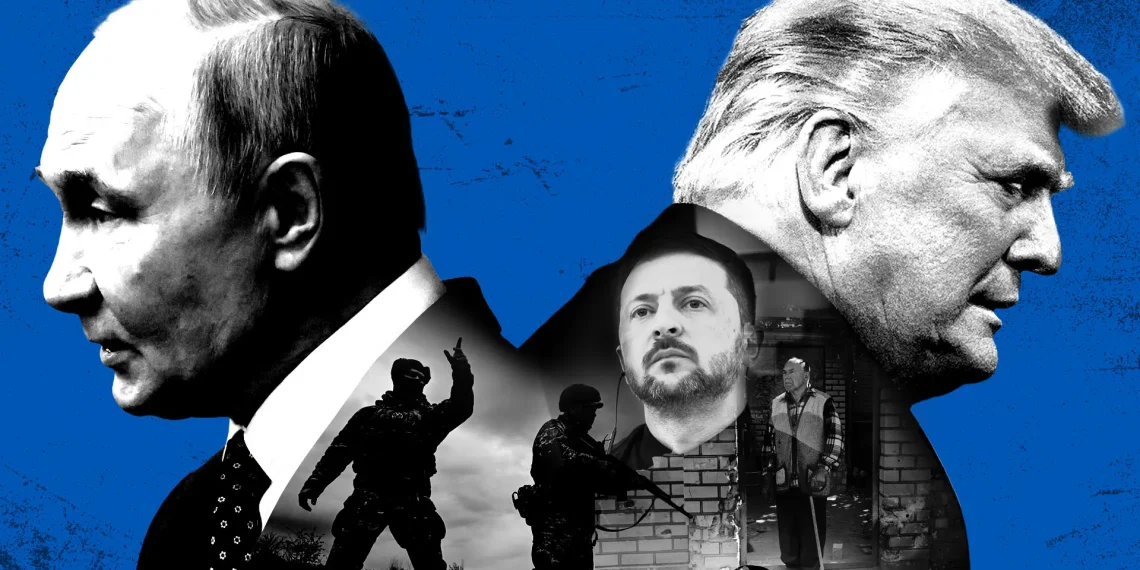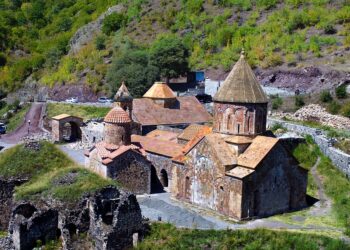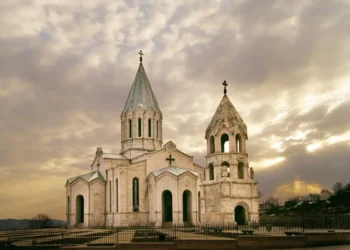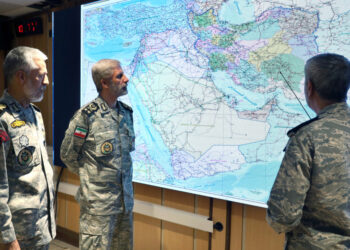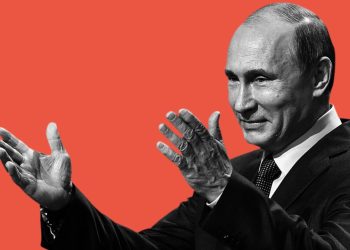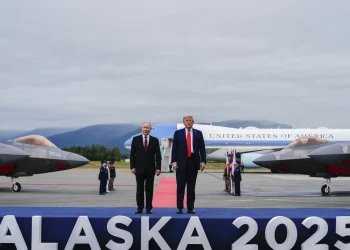MOSCOW (Realist English). Although more than a week has passed since the meeting between Russian President Vladimir Putin and U.S. President Donald Trump in Alaska on 15 August, the summit continues to dominate headlines both in Russia and abroad. The encounter gave new momentum to efforts to end the Russian-Ukrainian conflict, now in its fourth year. The objective, as outlined, is clear: a comprehensive agreement must be reached to end hostilities between Russia and Ukraine and to provide security guarantees not only for both states but for Europe as a whole. Crucially, both leaders rejected the idea of a temporary truce, insisting that only a lasting peace deal would be meaningful.
This position has unsettled supporters of continuing the war “with Ukrainian hands and lives” — above all Britain and France, both nuclear powers of Western Europe, along with Germany, Italy, Finland, and the leadership of NATO and the European Union. On 18 August 2025, they rushed to Washington in an attempt to persuade Trump to join their line. They rallied behind Ukrainian president Volodymyr Zelensky, whose mandate formally expired nearly two years ago but who was presented as the symbolic leader of their “coalition of war.”
Zelensky, in turn, argued for continuing the conflict with Russian forces, ideally financed by American taxpayers, as it had been under former President Joe Biden. When it became clear Trump would not alter his stance, the coalition shifted its demands to security guarantees for Ukraine — in essence, security guarantees for Zelensky personally and a justification for the war policy he has pursued for four years. They also pushed for Zelensky’s inclusion in talks, at minimum in a trilateral format with Putin and Trump.
The question arises: who actually needs such a trilateral meeting — Putin, Trump, or Zelensky? Putin has not excluded talks with a legitimate Ukrainian president to bring the conflict to an end. He has said he is willing to meet with Zelensky, since he is still acting as head of state, but set two conditions: first, that the meeting be thoroughly prepared by aides to ensure it produces long-term agreements; second, that the Ukrainian delegation be led by a legitimate representative under the country’s constitution, either a duly elected president or an authorized official able to sign binding agreements.
Trump, for his part, has floated the idea of a trilateral meeting in the past, positioning himself as a mediator and peacemaker, but he avoids publicly recognizing Zelensky as Ukraine’s legitimate leader — even though he previously received him as such. During their last interaction, Trump hinted that despite the war, Ukraine ought to have held elections.
For Zelensky, a meeting with Putin, especially with Trump present, is vital. He sees it as a way to affirm his status as a global political figure, boost his domestic ratings, and refute Putin’s legal argument that his mandate has expired. Understanding this, Moscow has suggested raising the level of officials in bilateral talks on ending the conflict. If Russia is represented by Foreign Minister Sergey Lavrov, then Ukraine, it argues, should also send a counterpart at ministerial level. “The ball is in Kyiv’s court,” as Russian officials put it.
There is also a third party eager for such a meeting: NATO and the European Union. For them, it would serve as political cover for supporting Zelensky and his war policy despite the questions over his legitimacy. Moreover, they seek direct participation in the process, knowing it could shape future developments.
For Russia, however, the key objective remains securing full control over the territories of the Donetsk and Lugansk People’s Republics, as well as the Zaporizhzhia and Kherson regions — all incorporated into the Russian Federation by local referendums but still partially held by Ukrainian forces. Only this, Moscow believes, can force proponents of continued war to adopt a realistic stance and shift toward a diplomatic settlement.
As for Ukraine’s security, Moscow insists it can only be ensured by Russia in cooperation with permanent members of the United Nations Security Council, especially those not directly involved in the conflict. Russian Foreign Minister Sergey Lavrov underlined this position in recent remarks.
Vyacheslav Zilanov — Professor, Honored Worker of the Russian Fisheries Industry, Honorary Citizen of Murmansk Region, exclusively for Realist English


